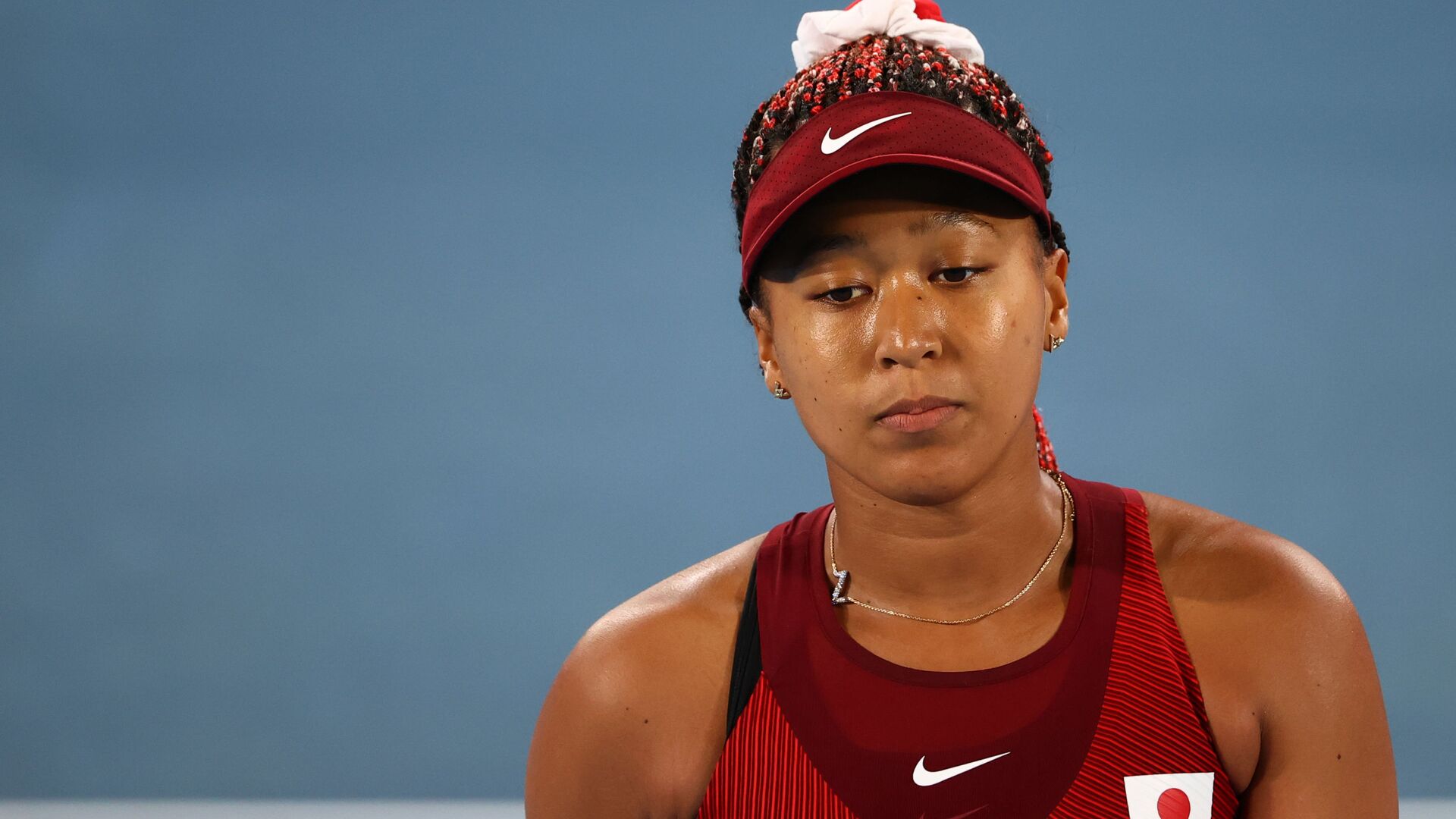https://sputnikglobe.com/20220330/naomi-osaka-hits-back-at-stefanos-tsitsipas-after-greek-star-speaks-out-against-equal-pay-in-tennis-1094326632.html
Naomi Osaka Hits Back at Stefanos Tsitsipas After Greek Star Speaks Out Against Equal Pay in Tennis
Naomi Osaka Hits Back at Stefanos Tsitsipas After Greek Star Speaks Out Against Equal Pay in Tennis
Sputnik International
Stefanos Tsitsipas is known for challenging conventional norms in both tennis and life. Last year, he got into a major fight with the Greek government over his... 30.03.2022, Sputnik International
2022-03-30T13:24+0000
2022-03-30T13:24+0000
2022-12-10T11:44+0000
sport
tennis
tennis star
naomi osaka
grand slam
grand slam
sputnik
controversy
remarks
remarks
https://cdn1.img.sputnikglobe.com/img/07e5/07/1b/1083469538_0:170:3037:1878_1920x0_80_0_0_ea91d6cfe35d40679aaae7ad69486ddb.jpg
Men's World No. 5 Stefanos Tsitsipas has ignited a major controversy in tennis when he spoke against equal pay in the sport at the ongoing Miami Open this week.The French Open runner-up even suggested that if women want to receive the same prize money as men, they should play best of five set matches at the Grand Slams.The Greek athlete went as far as to say that he had been informed that females are far more capable then men in withstanding wear and tear and hence, that's why they should have no hesitation in playing five set matches."There are also a lot of scientists and statisticians out there. I've been told that women have better endurance than men," he added."Maybe they can also play best-of-five, I guess. For Grand Slams, best-of-five, I like it. On the other hand, we would've seen much more variety when it comes to different Grand Slam winners if it was best-of-three," the former World No. 3 concluded.Though Tsitsipas tried to play down his remarks, they nevertheless sparked outrage in the tennis world.Naomi Osaka, a four-time Grand Slam champion and former women's No. 1 was particularly scathing in her criticism of Tsitsipas, describing him as a 'funny guy" who should not be taken seriously at all. "Does he want to play nine sets? If he tries to extend mine, I'm going to extend his," Osaka told Eurosport, rebuking his comments.Osaka argued that Tsitsipas had no right to speak about a women's sport, considering he is a man and he would not understand the struggles of his female counterparts."It will probably also take a very long time to be implemented, but also, a man is talking about a women's sport, so I don't think his idea is going to go through," Osaka explained.The two-time Australian and US Open winner insisted that equal prize money was something that women had earned through decades of hard work and ticket sales were reflective of the same. "I don't want to be rude. I'm really trying to structure this in a way that's not like off-putting, but I think it's like decades of hard work," she continued."For me, I feel like the revenue that you generate, like ticket sales, is very important, and I think the WTA is doing a really good job at that," the 24-year-old concluded.Equal pay at the Grand Slams has been a subject of hot debate as women have always played best of three set matches, unlike the men who have to play five to decide a winner.Back in 1973, the US Open became the first Grand Slam to introduce equal pay after legendary American Billie Jean King threatened to boycott the competition.However, it took 28 years of consistent pressure from top women's players, including Lindsay Davenport to force another Slam to award the same pay as men. In 2001, the Australian Open began offering the same pay to both the sexes. Roland Garros and Wimbledon joined the bandwagon much later in 2006 and 2007 respectively.
Sputnik International
feedback@sputniknews.com
+74956456601
MIA „Rossiya Segodnya“
2022
Pawan Atri
https://cdn1.img.sputnikglobe.com/img/07e5/05/12/1082926219_0:0:358:358_100x100_80_0_0_aca1d9bdccc7af990e49b4511ee80344.png
Pawan Atri
https://cdn1.img.sputnikglobe.com/img/07e5/05/12/1082926219_0:0:358:358_100x100_80_0_0_aca1d9bdccc7af990e49b4511ee80344.png
News
en_EN
Sputnik International
feedback@sputniknews.com
+74956456601
MIA „Rossiya Segodnya“
Sputnik International
feedback@sputniknews.com
+74956456601
MIA „Rossiya Segodnya“
Pawan Atri
https://cdn1.img.sputnikglobe.com/img/07e5/05/12/1082926219_0:0:358:358_100x100_80_0_0_aca1d9bdccc7af990e49b4511ee80344.png
sport, tennis, tennis star, naomi osaka, grand slam, grand slam, sputnik, controversy, remarks, remarks, comments, comments, roland garros, wimbledon, equal pay, billie jean king, us open
sport, tennis, tennis star, naomi osaka, grand slam, grand slam, sputnik, controversy, remarks, remarks, comments, comments, roland garros, wimbledon, equal pay, billie jean king, us open
Naomi Osaka Hits Back at Stefanos Tsitsipas After Greek Star Speaks Out Against Equal Pay in Tennis
13:24 GMT 30.03.2022 (Updated: 11:44 GMT 10.12.2022) Stefanos Tsitsipas is known for challenging conventional norms in both tennis and life. Last year, he got into a major fight with the Greek government over his stance against COVID vaccines. On the court, he has often been accused of taking long bathroom breaks to disrupt the rhythm of his opponents, a rule finally done away by the ATP in November.
Men's World No. 5
Stefanos Tsitsipas has ignited a major controversy in tennis when he spoke against equal pay in the sport at the ongoing Miami Open this week.
The French Open runner-up even suggested that if women want to receive the same prize money as men, they should play best of five set matches at the Grand Slams.
"I don't want to be controversial. There is also the topic of equal pay, women getting equal pay for playing best-of-three, then getting equal pay for playing best-of-five," the Athens-born tennis player said after his win over Alex De Minaur in Florida.
The Greek athlete went as far as to say that he had been informed that females are far more capable then men in withstanding wear and tear and hence, that's why they should have no hesitation in playing five set matches.
"There are also a lot of scientists and statisticians out there. I've been told that women have better endurance than men," he added.
"Maybe they can also play best-of-five, I guess. For
Grand Slams, best-of-five, I like it. On the other hand, we would've seen much more variety when it comes to different Grand Slam winners if it was best-of-three," the former World No. 3 concluded.
Though Tsitsipas tried to play down his remarks, they nevertheless sparked outrage in the tennis world.
Naomi Osaka, a four-time Grand Slam champion and former women's No. 1 was particularly scathing in her criticism of Tsitsipas, describing him as a 'funny guy" who should not be taken seriously at all.
"Does he want to play nine sets? If he tries to extend mine, I'm going to extend his," Osaka told Eurosport, rebuking his comments.
"This guy is so funny, man. I don't know. I feel like that would change the structure of tennis. Like people will start doing things differently in the gym and stuff like that," the Japanese superstar added.
Osaka argued that Tsitsipas had no right to speak about a women's sport, considering he is a man and he would not understand the struggles of his female counterparts.
"It will probably also take a very long time to be implemented, but also, a man is talking about a women's sport, so I don't think his idea is going to go through," Osaka explained.
The two-time Australian and US Open winner insisted that equal prize money was something that women had earned through decades of hard work and ticket sales were reflective of the same.
"I don't want to be rude. I'm really trying to structure this in a way that's not like off-putting, but I think it's like decades of hard work," she continued.
"For me, I feel like the revenue that you generate, like ticket sales, is very important, and I think the WTA is doing a really good job at that," the 24-year-old concluded.
Equal pay at the Grand Slams has been a subject of hot debate as women have always played best of three set matches, unlike the men who have to play five to decide a winner.
Back in 1973, the US Open became the first Grand Slam to introduce equal pay after legendary American Billie Jean King threatened to boycott the competition.
However, it took 28 years of consistent pressure from top women's players, including Lindsay Davenport to force another Slam to award the same pay as men.
In 2001, the Australian Open began offering the same pay to both the sexes. Roland Garros and Wimbledon joined the bandwagon much later in 2006 and 2007 respectively.


